
So the moment of decision had come, for Friedrich II. He ordered it so, and at the end of August 1458 Brandenburg marched against the rump county of Stettin, and its capital of Stargard.
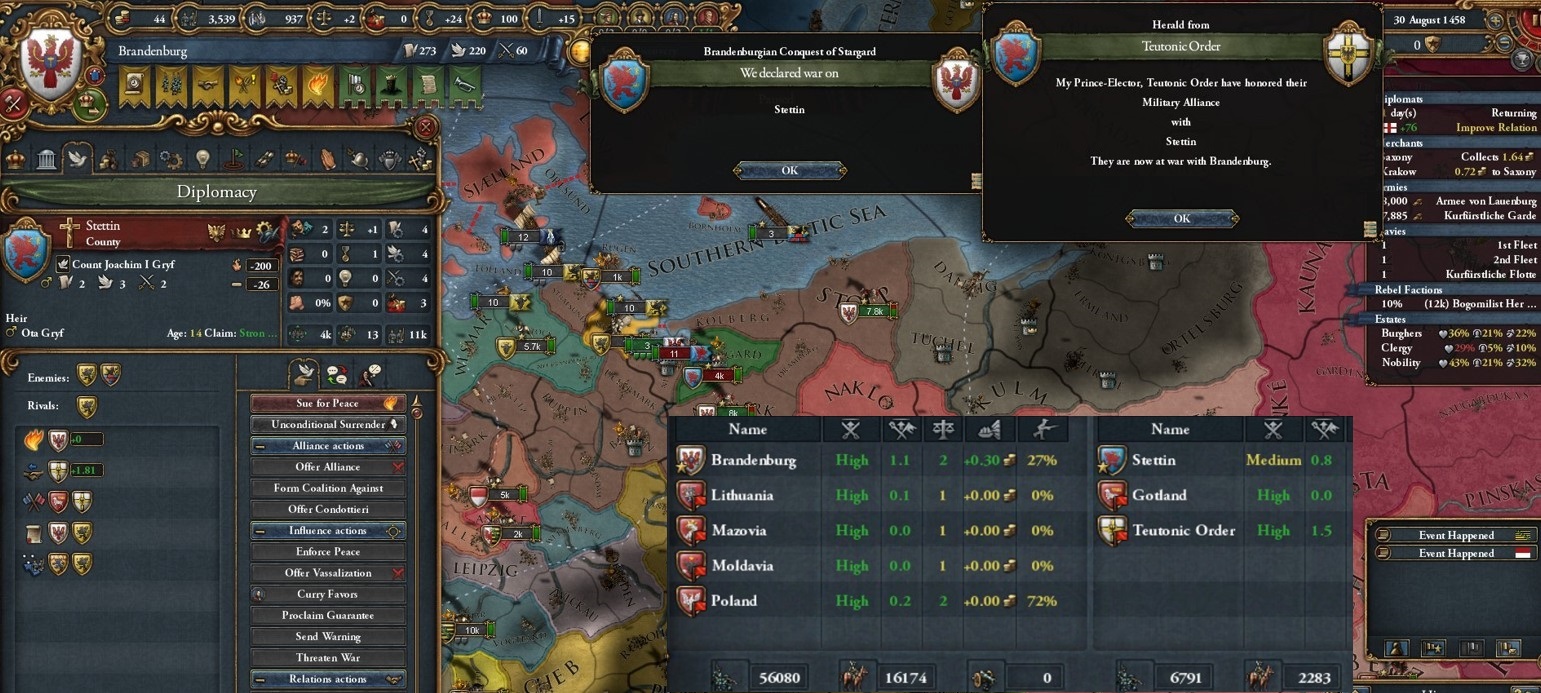
An expected complication arises – the Teutonic Knights come to the defense of their allies in Stettin.
And so the natural response for Friedrich was to call his ally Poland for assistance against the Knights, who then brought Lithuania, Moldavia and Mazovia into the war (on a side note, before the war ends Poland diploannexes Mazovia).
Now, keep in mind this is a
mobbing of Prussia – the Teutonic Knights and Stettin (and Gotland) have about 10,000 soldiers between them, whereas Brandenburg, Poland and Lithuania (and their small allies) have 56,000 Infantry and 16,000 Cavalry. This won’t be a long war.
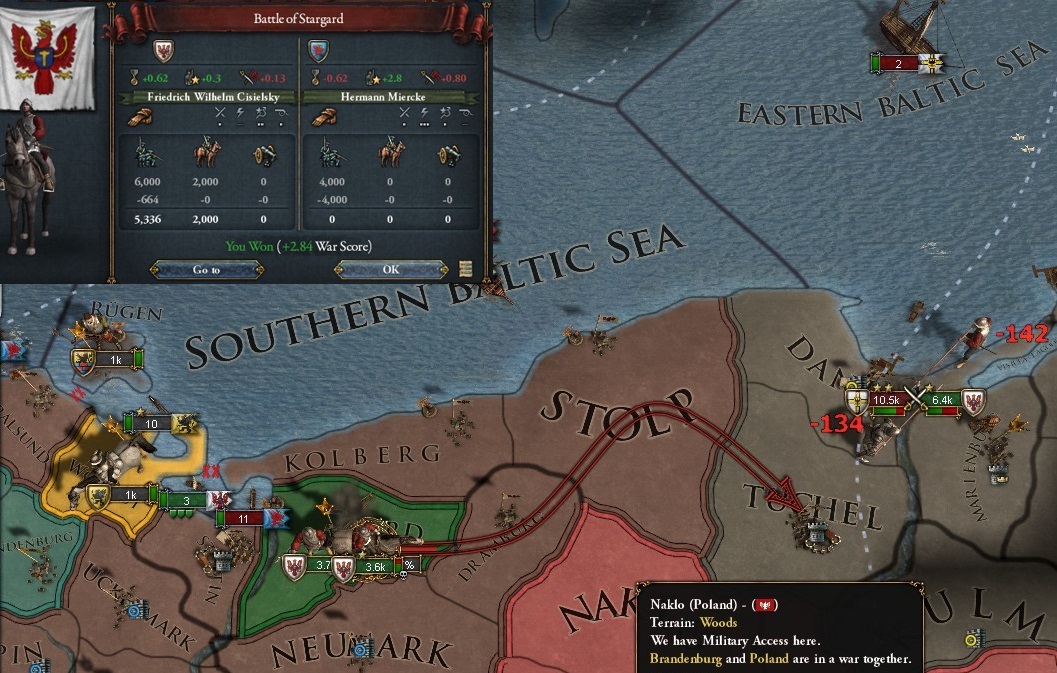
It took General Friedrich Wilhelm Cisielsky only two weeks to defeat the 4,000 Stettiners with his 6,000 infantry and 2,000 cavalry. The siege began. He immediately left a siege force behind while he moved toward Tuchel to continue the invasion of Teutonic territory that had already begun.
Unfortunately, Gen. August von Buhler was already in trouble in Danzig. His 8,000 troops had been engaged against 11,000 Teutons and losses had occurred. It would have done nothing for Cisielsky to have come to his aid – he would have arrived too late. But at Tuchel it was thought maybe he could make a stand.
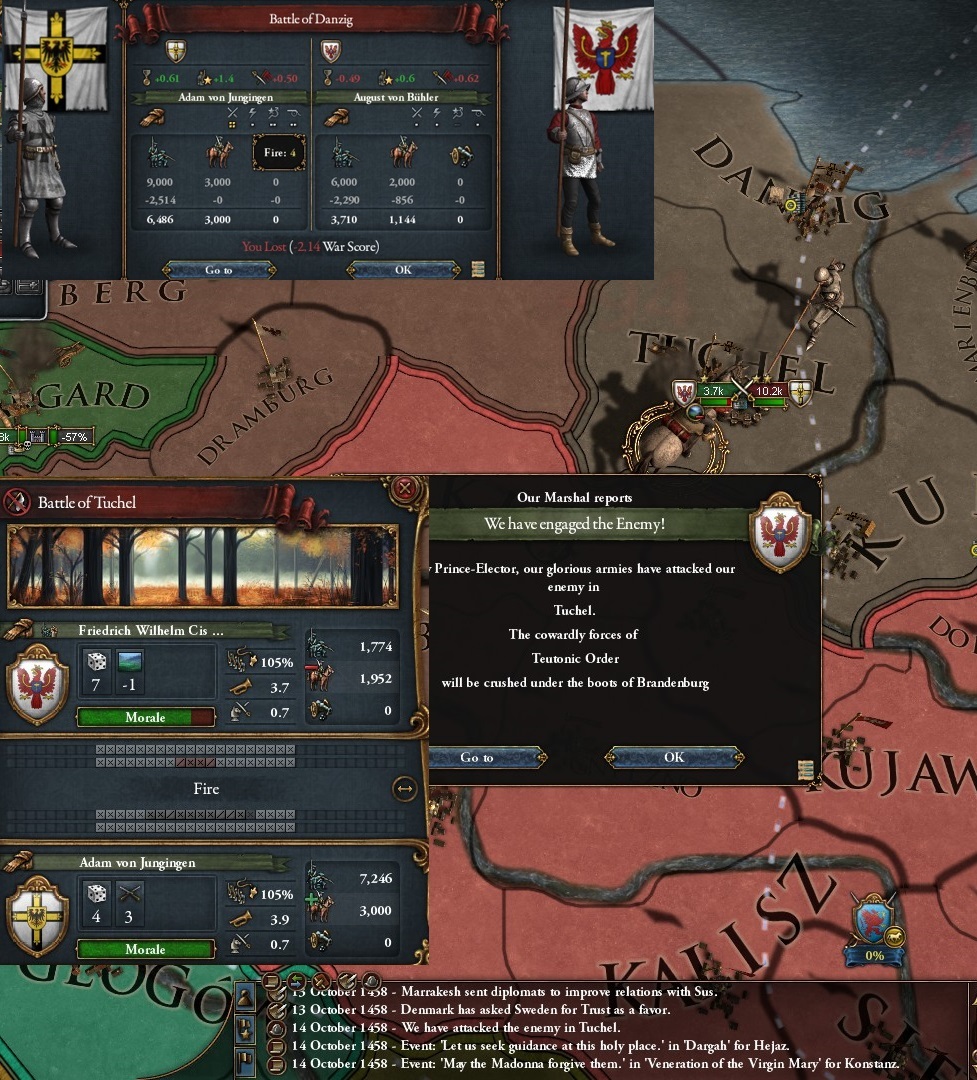
Buhler’s loss at Danzig on 2 October almost undid the glory achieved at Stargard, and he began an ignominious retreat into Brandenburg to lick his wounds. But at least the losses had been approximately even. The Teutons marched south to attack Cisielsky.
By the end of October Cisielsky had been defeated also, for the loss of 1700 Brandenburgers against half that many Teutons. But then Poland and Lithuania arrived in the conflict. And the sacrifice of Brandenburg had softened up the enemy beforehand.
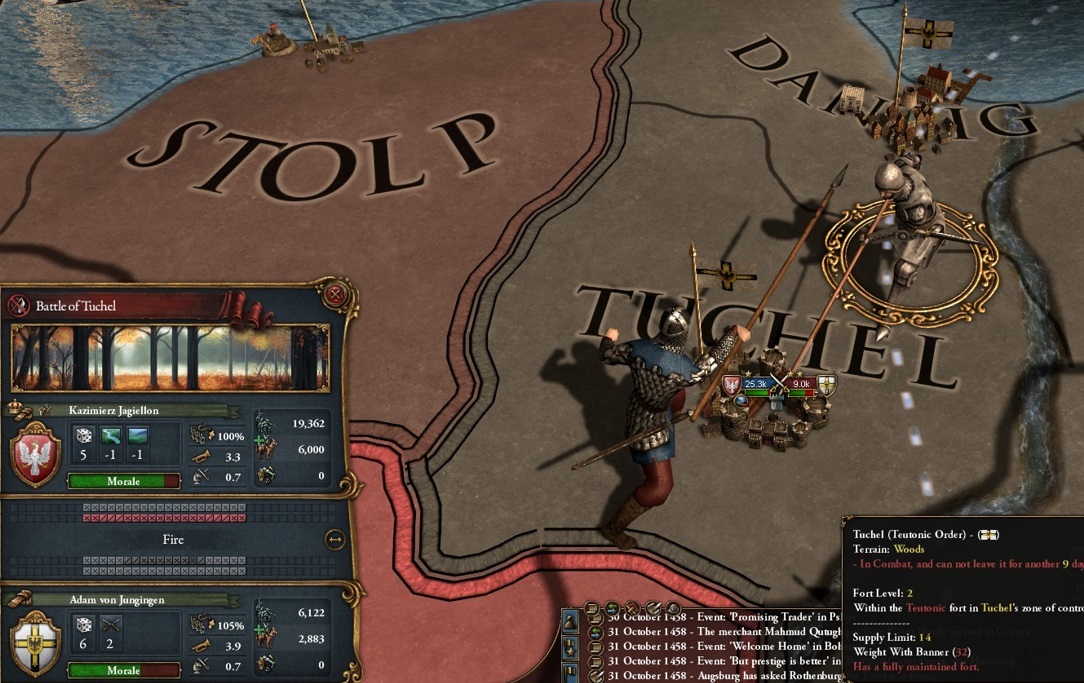
Polish Grand Duke Kasimierz Jagiellon tore into the Teutons, as there was apparently bad blood between them already. Against 9,000 he brought 25,000. THIS was how Brandenburg would win the war.
While this lopsided battle resolved itself, von Buhler had already taken up siege positions against the walls of Danzig. If the Poles and Lithuanians could keep the Teutonic armies busy, we would claim the land. And our allies appeared content to allow this to be the way of things.
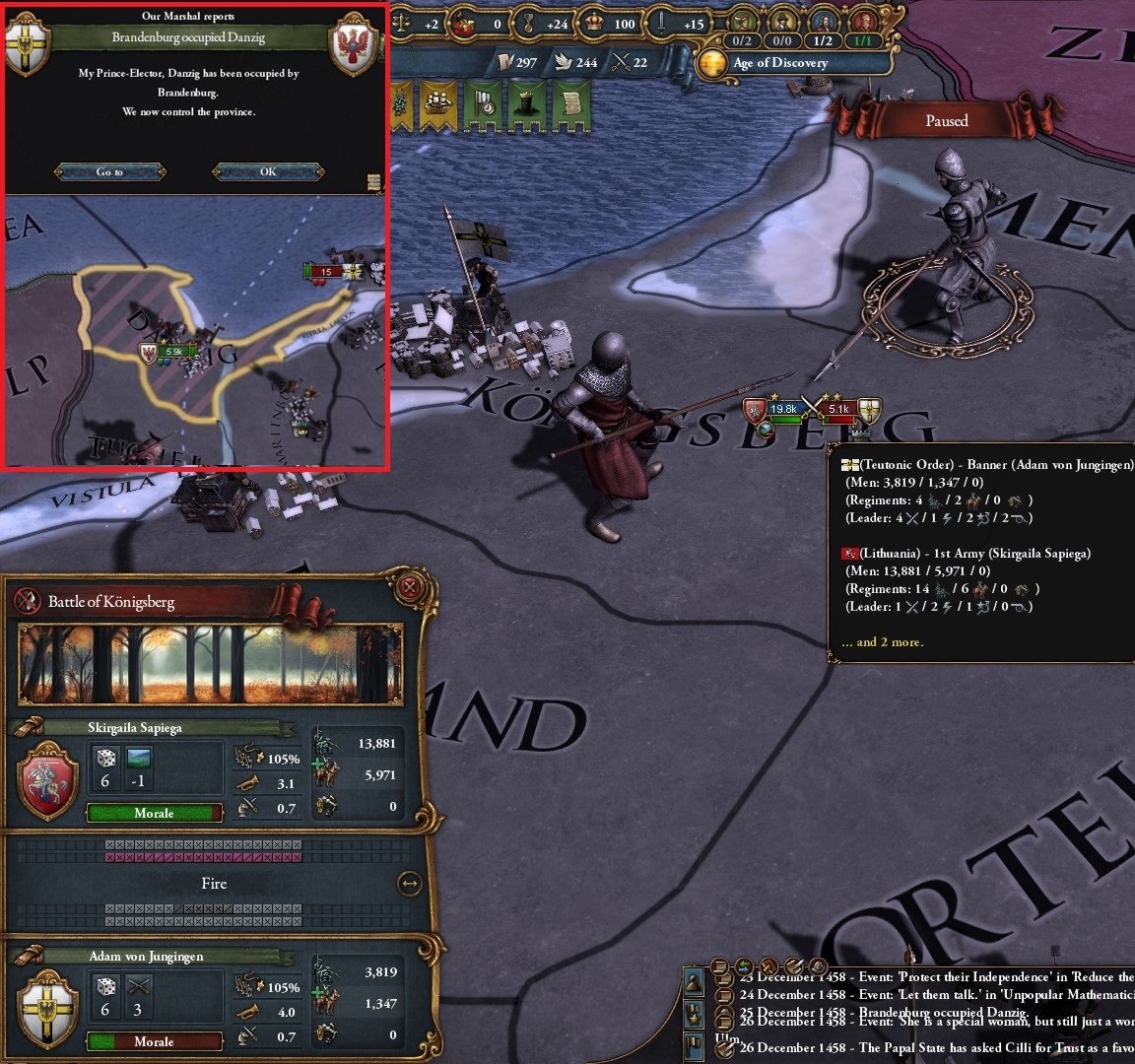
Before the end of the year, Brandenburg had control of the City of Danzig, and the Poles and Lithuanians had engaged the Teutonic Knights at Konigsberg. Soon, Brandenburgian soldiers joined, and when the Knights were utterly defeated the Polish Hussars and others left to cause havoc elsewhere while Brandenburg stood siege.
Stargard opened its gates to Brandenburg in July of 1459, but the war and sieges continued for many months more.
The Poles at Marienburg delivered another staggering defeat to the Knights in February 1460. More soldiers were raised, but they couldn’t stand for long. Three sieges continued through much of 1460.
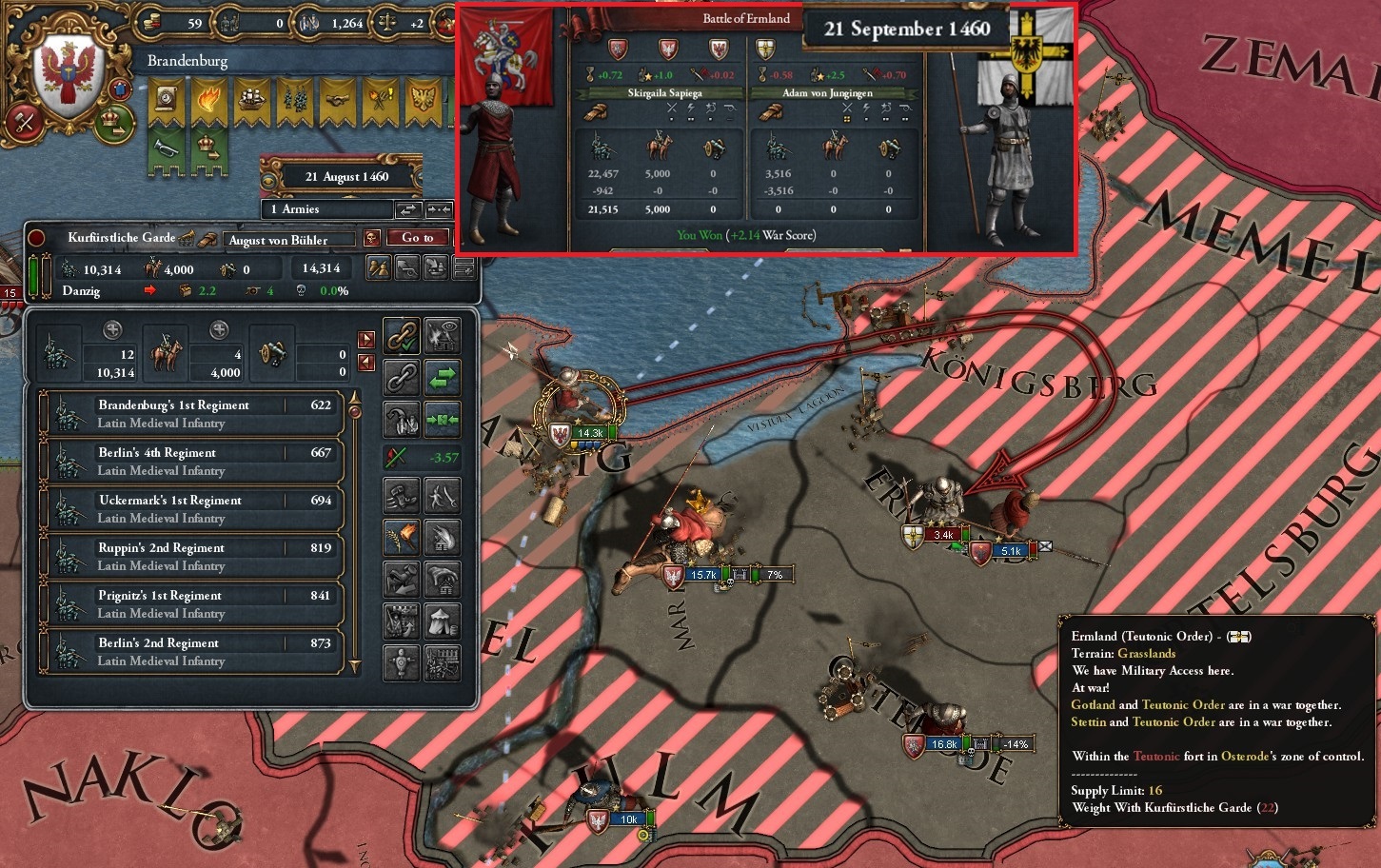
When the Lithuanians retreated from a failed attempt to destroy the last remaining Order army, Gen. von Buhler rode to finish them. The Lithuanians and Poles returned to assist. By September the last defenders surrendered.
The Teutonic Order had stubbornly refused an earlier offered peace for just the transfer of Stargard. By October they were forced to suffer the indignity of more territorial concessions.
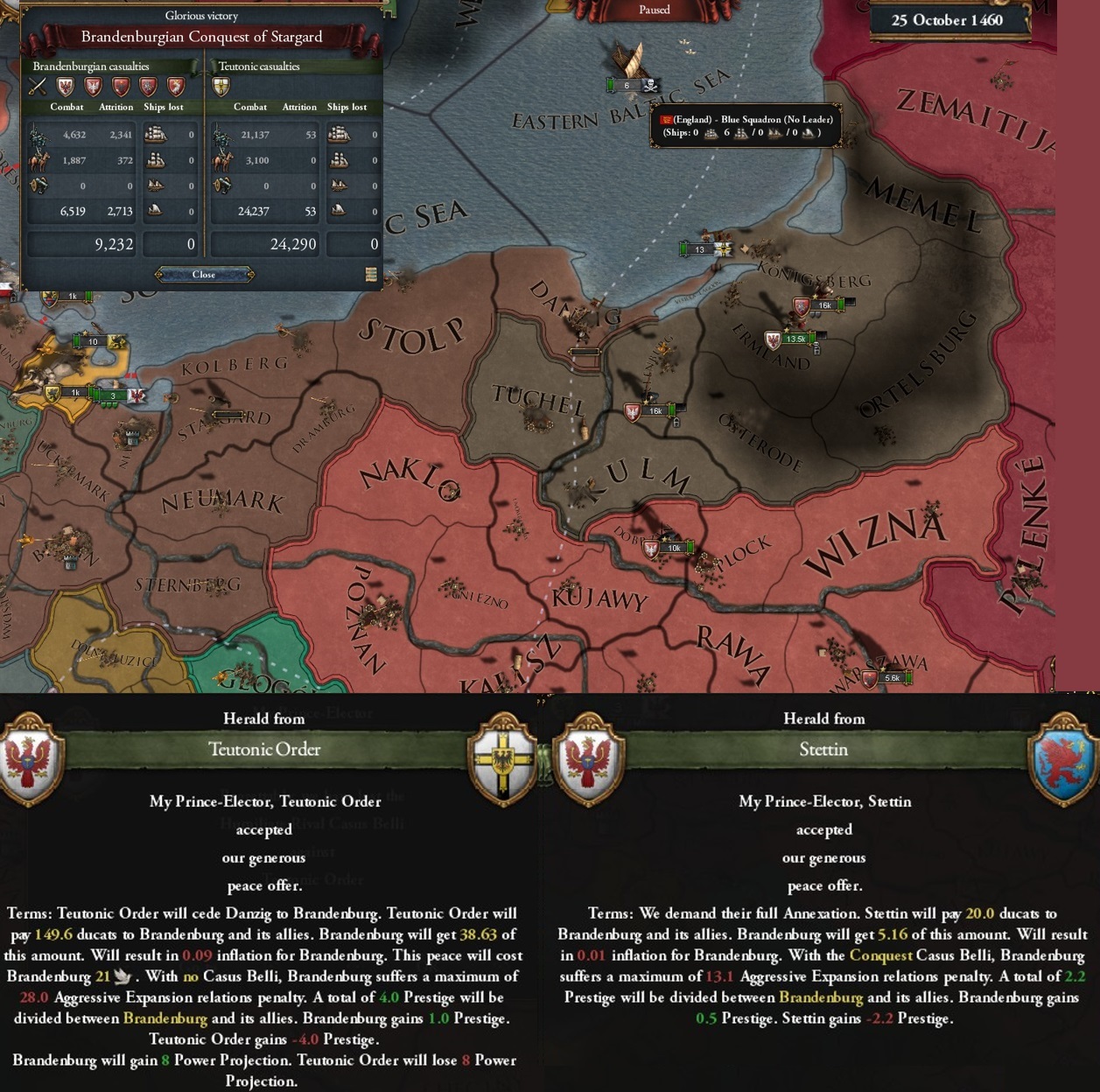
The Poles and Lithuanians had lost nearly 30,000 men during the war – a staggering amount, much of it due to attrition. Brandenburg lost 9,000 men, which seems costly but also not crippling. Fewer of our casualties were due to attrition. The massive stack armies of our allies didn’t help them. They kind of did help us, though, since they crushed the Teutonic Order for us.
Prince-Elector Friedrich II felt like the Poles and Lithuanians should have been compensated more fully for their victory. But of course Prussia, eventually, hoped to take all of this territory, and there were favors and monetary damages received by the others that could assuage their losses.
Whether the Poles and Lithuanians saw it that way is debatable. The Poles also desired this same territory, including the City of Danzig, which would come to be a point of contention later…
And before I go on with the rest of the update I have a question for those more familiar with the game… In a later war I was unable to make a separate peace with the different parties – I had to negotiate only with the Alliance leader. How was I able to make a separate peace with the Teutonic Knights first, and then with Stettin?
Anyway… Time for Brandenburg to assimilate its new territory and recoup its losses.
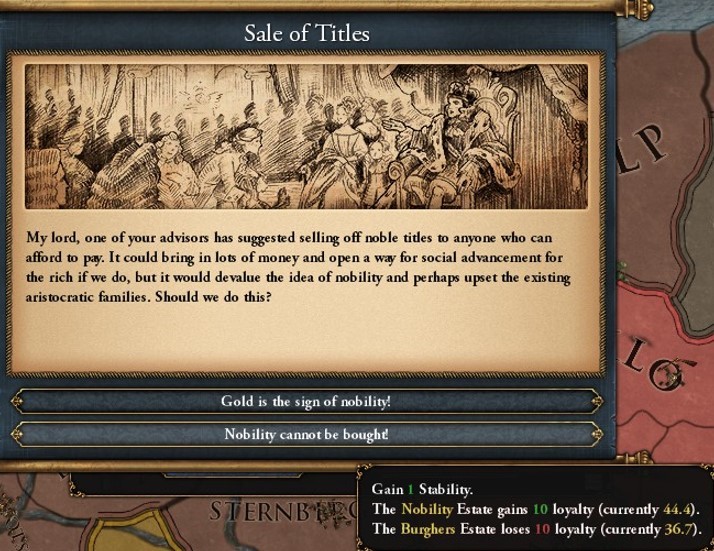
Immediately after the war Friedrich sold off some titles for cash and for an increase in Stablity (now +3).
Diplomats continued to work on relations with Mainz, where Austria, Nassau and Hesse all remained ahead of Brandenburg in favor (despite Mainz’ having just sent Hesse an insult!).
But our efforts with others of the Electors were going better. Though each Elector still preferred Austria (the current holder), Brandenburg was closing in in terms of preference.
And, during the war an important advance had occurred…
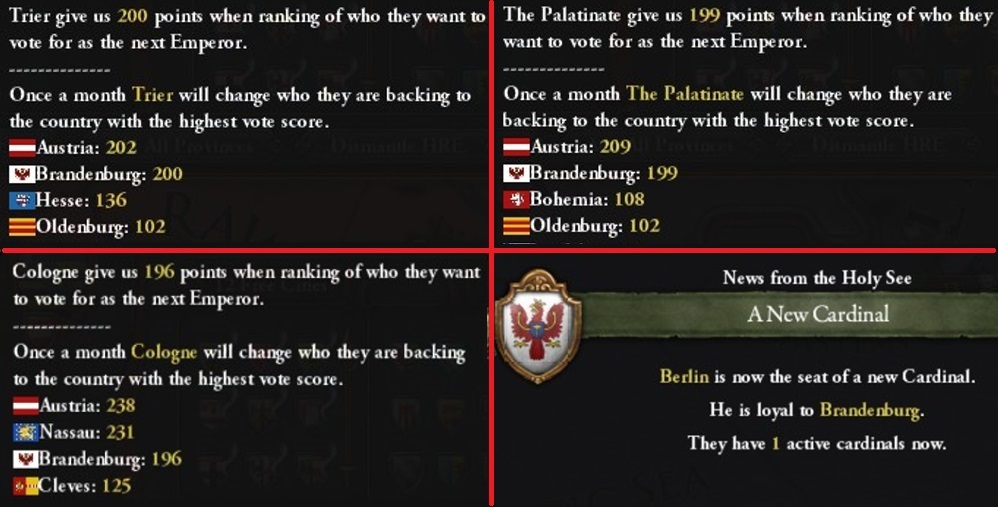
A new Brandenburgian Cardinal showed that, perhaps, relations with the Pope were better than they had been in the past (it wasn’t the same Pope, the Papacy having turned over twice since the old conflict). The Emperor, too, seemed to be wishing to improve relations with the quickly strengthening Brandenburg.
Things were looking up. Denmark, about this time, adopted the trappings and ideas of the Italian Renaissance. Could Brandenburg be too far behind? Not too far? Maybe not? Hmm…












